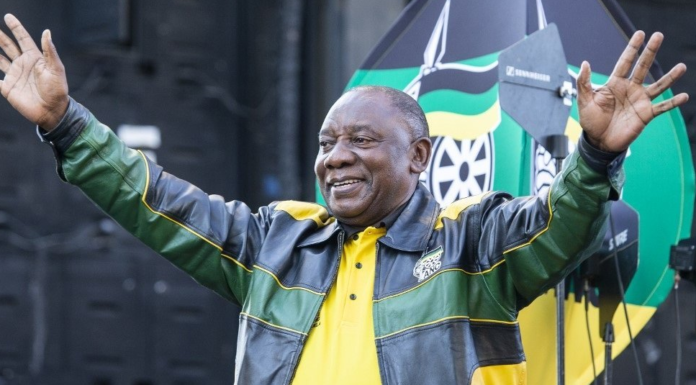(R W Johnson, Quillette) The explosion of looting and destruction which has overtaken South Africa has left the government of President Cyril Ramaphosa shaken and dazed, its credibility and legitimacy undermined. Ramaphosa’s broadcasts to the nation, appealing for calm, full of cliches and generalities, have met with derision.
Nobody doubts that South Africa has reached another Rubicon, one which the ANC (African National Congress) government may be unable to cross.
The explosion of violence followed the jailing of former President Jacob Zuma on a charge of contempt for refusing to appear before the Commission of enquiry into the wholesale looting of the state which took place under his presidency. Nobody seriously doubts that Zuma stole millions, probably billions of Rands and he still faces a long list of charges for racketeering, money-laundering and sundry other crimes.
But Zuma still has a large following among his Zulu followers and effectively threatened to make the country ungovernable if the government dared to jail him.
…
However, once the rioting and looting of shops and hijacking of trucks on the highway began, with the police clearly scared and ineffective, word rapidly spread that you could go “shopping without money,” creating huge excitement among the ranks of the millions of poor and unemployed Zulus who inhabit the townships and squatter camps around Durban and Pietermaritzburg, and from there spreading into every small town of the province.
Most of the looters and miscreants were unconcerned about Zuma’s fate. They simply heard along the grapevine that trouble was going on and realised that opportunity was staring them in the face.
They flocked in huge numbers to the shopping malls and began to loot them. Quickly the spree spread to Johannesburg, home to many more Zulus—though many others joined in. It was a whole-of-community thing: most of the looters were poor and on foot but not a few arrived in cars, sometimes very expensive cars. Some even came with vast trailers to haul away freezers, fridges, and cookers.
Huge queues of cars swamped the freeways, all heading for the malls, and other forms of criminality blossomed—protection rackets, attacks on and thefts from other motorists, anything that offered a quick buck.
In a sense this had been coming for a long time. When the ANC was first elected in 1994 its posters promised “Jobs, jobs, jobs!” but paid little heed to that once they were elected.
In 1995 the average number of unemployed, according to official figures, was 1,698,000 or, if one took the expanded definition of unemployment, including those who had given up looking for a job, the figure was 3,321,000. With only a few exceptional periods to the contrary, that figure has grown steadily and hugely to surpass 11.4 million today.
Since the unemployed have little or no income, this has also meant a huge growth in both poverty and inequality. The ANC has routinely deplored poverty and inequality but it has generally tried to pretend that this is part of the “apartheid inheritance.”
As the figures show, this is the opposite of the truth.
…
With the forces of law and order so weak and inactive, vigilante militias have sprung up to protect many suburbs and, typically, to protect their local mall or supermarket on which that suburb depends. Often these vigilante groups are multiracial but usually they depend on white ex-members of the security forces.
South Africa damage… pic.twitter.com/7OKTlz5vyQ
— Lara Logan (@laralogan) July 16, 2021



